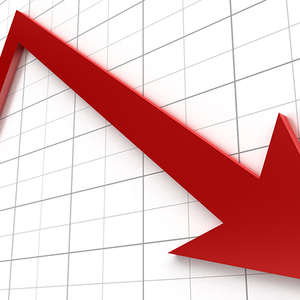Residential Real Estate News

30-Year Mortgage Drops to 6.56 Percent in Late August, Lowest Since October 2024
Residential News » Washington D.C. Edition | By Monsef Rachid | September 3, 2025 8:03 AM ET
U.S. mortgage rates eased slightly this week, reaching their lowest level in nearly 10 months, a development that could provide some relief to homebuyers after two years of elevated borrowing costs.
According to Freddie Mac's latest Primary Mortgage Market Survey, the average rate on a 30-year fixed mortgage slipped to 6.56% as of August 28, 2025, edging down from 6.58% a week earlier. While the decline is modest, it marks the lowest reading since late October 2024 and reflects a broader trend of gradual easing as financial markets continue to adjust to expectations of slower inflation and steadier economic growth.
The drop in rates has already begun to spark renewed interest from buyers. "Mortgage rates are at a 10-month low," said Sam Khater, Freddie Mac's chief economist. "Purchase demand continues to rise on the back of lower rates and solid economic growth. Though many potential homebuyers still face affordability challenges, consistently lower rates may provide them with the impetus to enter the market."
Even with this improvement, rates remain significantly higher than the ultra-low levels seen during the pandemic, when 30-year loans fell below 3%. Compared with a year ago, borrowing costs have only slightly increased--the 30-year fixed mortgage averaged 6.35% in late August 2024--underscoring how the housing market continues to operate in a higher-for-longer rate environment.
The average 15-year fixed-rate mortgage held steady at 5.69% this week, unchanged from the previous survey. A year earlier, the 15-year averaged 5.51%, highlighting the persistence of elevated financing costs across different loan terms.
The combination of marginally lower borrowing costs and still-strong economic fundamentals could give the U.S. housing market some momentum heading into the fall. Economists note, however, that affordability pressures remain a significant constraint. Elevated home prices, tight inventory, and household budget strain from broader inflation continue to weigh on first-time buyers in particular.
Freddie Mac's weekly survey, which has tracked mortgage rates since 1971, remains a closely watched indicator for both the housing industry and investors, as mortgage trends often reflect the broader trajectory of the U.S. economy and monetary policy.
Sign Up Free | The WPJ Weekly Newsletter
Relevant real estate news.
Actionable market intelligence.
Right to your inbox every week.
Real Estate Listings Showcase
Related News Stories
Residential Real Estate Headlines
- Las Vegas Housing Market Tilts Toward Buyers as Prices Cool
- Ultra-Luxury Home Sales Surge Globally in Late 2025 as 555 Mega-Deals Close
- U.S. Luxury Home Prices Outpaced the Broader Market in 2025
- U.S. Homeowner Equity Growth Cooled in 2025 but Remained Historically Strong
- U.S. Homebuyers Scored Biggest Price Discounts Since 2012 as Market Shifts
- Ten Key Takeaways from the U.S. Housing Market in January
- Hong Kong Stock Market Front-Runs Local Home Prices by Two Months
- Mass Exodus: U.S. Homebuyers Cancel Deals at Record Levels
- U.S. Housing Outlook for 2026 Darkens After Sharp December Pullback in Contract Signings
- America's Housing 'Silver Tsunami' Is Turning Into a Trickle
- Builders Tell Congress Government Rules Are Pricing Americans Out of Housing
- California Housing Market Poised for Balanced Growth in 2026
- U.S. Housing Market Hits Largest Buyer-Seller Imbalance on Record
- Miami Housing Market Ends 2025 on Firmer Ground
- U.S. Homebuilder Confidence Dips at Start of 2026
- Remodeling Outlook Improves as U.S. Homeowners Tap Equity
- U.S. Home Sales Hit Three-Year High in December as Rates Ease
- Las Vegas Area Home Sales Hit 18-Year Low in 2025
- U.S. Mortgage Rates Hit Three-Year Low in January
- U.S. Home Affordability Closed Out 2025 Near Record Lows
- Ireland Home Prices Uptick 5.5 Percent in 2025 Amid Supply Shortages
- One Year After Los Angeles Wildfires, Investors Snap Up Burned Lots
- Greater Palm Beach Area Home Sales Surge in Late 2025
- U.S. Homebuilder Sentiment Ends 2025 in Negative Territory
- America's Single-Family Rent Boom Loses Steam in Late 2025
- Miami Home Price Gains Extend 14-Year Run in 2025
- Why Pre-Biden Mortgages Froze the U.S. Housing Market
- From Bricks to Blockchain: How Digital Dollars Could Soon Rewire Global Real Estate
- U.S. Home Sales Slightly Uptick in November
- Greater Orlando Area Home Sales Dive 22 Percent in November
- World Property Exchange Aims to Make Real Estate Ownership Instantly Tradeable and Democratized on a Planetary Scale
- Falling Home Prices Slash U.S. Homeowner Equity by $13,400 on Average in 2025
- Home Listings in U.S. See Sharpest Drop in Two Years Amid Cooling Buyer Demand
- Dutch Investors Pour Record $4.2 Billion in New Rental Housing in 2025
- U.S. Housing Markets Poised for 2026 Rebound, NAR Says
- Las Vegas Home Prices Hit Record High in November as Inventory Swells, Sales Cool
- Investors Accounted for 30 Percent of All U.S. Home Purchases in 2025
- Canadian Home Sales Recovery Continues in October
- Global Luxury Home Price Growth Cools to 2-Year Low in September
- U.S. Housing Market Recovery to Remain Fragile in 2026







